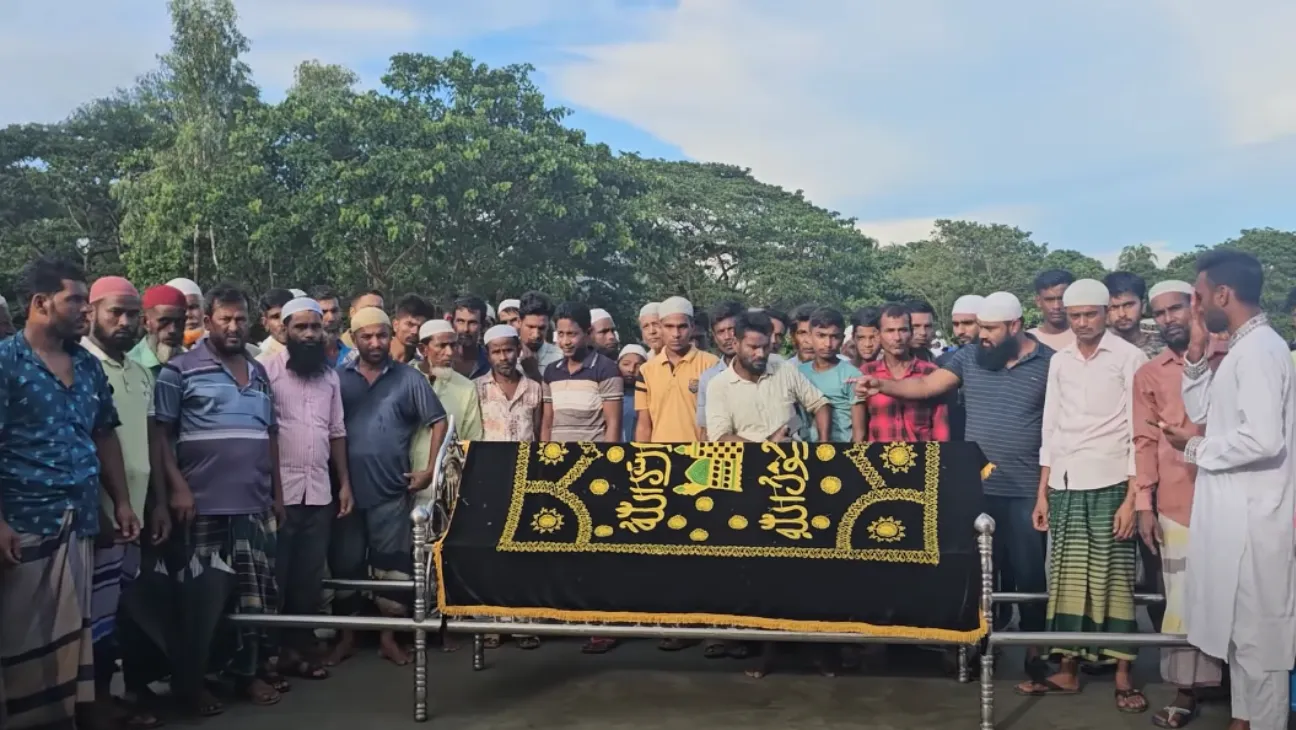The small village of Jayasiddhi in Bangladesh’s Itna upazila was overwhelmed with visitors on Friday as people from nearby and distant areas came to attend the funeral of Mono Mia, a local man who quietly dedicated his life to digging graves for others without ever asking for anything in return.
Mono Mia, aged 73, spent decades preparing the final resting places for strangers and neighbors alike. His family said he dug more than 3,000 graves during his lifetime. He never took money. He didn’t accept food from the deceased’s family. He only had one wish—that he would return to his Creator in peace and health.
“He never took even a token of thanks,” said one mourner. “He would refuse any meal at the house of the deceased. All he asked for was to be well enough to do his work and leave this world quietly when the time came. I think his prayer was accepted.”
Locals often referred to him as “the man of the final address,” a title that reflected his unique role in the community. For decades, Mono Mia was the one people called when death visited their homes. He came without hesitation, without conditions.
Relatives said he rarely spoke about his own needs. He had no children. His body eventually gave in to a number of illnesses, including diabetes and cancer, which went largely unmanaged as he paid little attention to his own health.
He was admitted to a hospital in Dhaka on May 14. After receiving some treatment, he returned home but passed away in the early hours of June 28.
“He never asked me for help with anything,” said his older brother. “Not once did he tell me to do something for him. I just did what I could, but really, he took care of everything himself.”
Grief left his wife, Rahima Begum, almost speechless. A trembling voice broke through the silences as she recalled his final days—the helplessness of feeding him, of watching him gasp for breath.
“I gave him honey,” she said, the words a struggle. “I held his hand, but I felt him slipping away. I was calling his name. I didn’t want to let go.”
The feeling of being alone is now overwhelming. “There’s this burning in my chest. I have no one left. And when I cry, it feels like I’ll fall apart.”
Rahima’s quiet sorrow mirrored what many in the village felt. People remembered Mono Mia as someone who never turned away from others in their time of need. He never saw the work as a burden.
“He helped bury around three thousand people,” one local man said. “Now that he’s gone, we feel this deep loss. We’re digging his grave together, just like he did for so many.”
No one could quite explain how it felt to prepare a grave for the man who had prepared so many. But the effort was collective. Villagers cleaned the space, shaped the soil, and placed him gently where he once placed others.
The funeral was simple. There were no grand arrangements. But the crowd said more than any monument could. People stood shoulder to shoulder, many crying. Some whispered prayers. Others just watched.
In the end, it wasn’t the number of graves that defined Mono Mia. It was the absence of demand. The quiet commitment. The choice to serve, over and over again, with no request for recognition.
On this day, though, recognition came. Not with awards. Not with headlines. But with people. A sea of them. All showing up to say goodbye.









